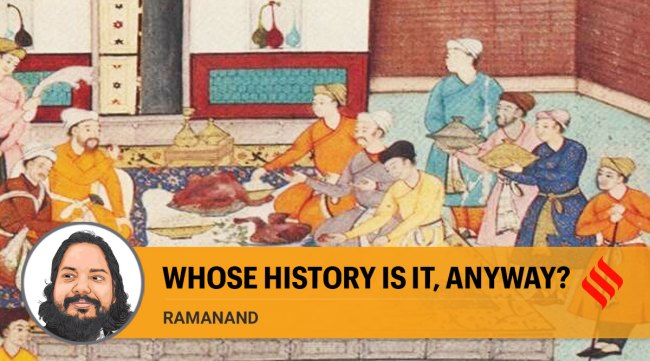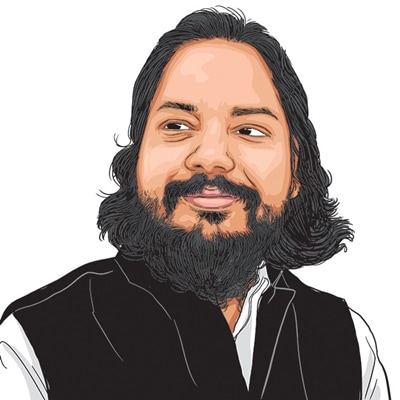Opinion On NCERT textbooks: Whose history is it?
In today's technological age, students need the historical method – they can discover facts for themselves
 The ongoing controversy surrounding textbooks should also be understood in the context of conflicting interests between different groups. This type of disagreement is not new in India's academic history: Similar controversies occurred in 1977 and have continued since 2005.
The ongoing controversy surrounding textbooks should also be understood in the context of conflicting interests between different groups. This type of disagreement is not new in India's academic history: Similar controversies occurred in 1977 and have continued since 2005. Across the globe, societies have a unique relationship with their history. People tend to favour the parts of history that align with their beliefs and dislike those that don’t. As a result, people usually tried to write history as per the convenience of the present. This is not limited to any particular society or country; it is essentially a universal phenomenon. Only a few societies have the moral courage to understand and accept history as it is.
For instance, the British have started acknowledging some of their atrocities on the Indian masses, but they still refuse to accept that it was wrong. Therefore, history is subjective, and different societies may have different perspectives on it.
Can history be understood accurately? Is one version enough to explain its complexities? The answers to these fundamental questions can clarify the issues regarding history. You cannot describe the present event without disagreement within existing accounts. So, how can we expect that history will have only one version?
The recent rationalisation of NCERT history textbooks should be viewed in light of this phenomenon. While some people argue that these changes distort historical facts, the truth is that both sides seek a history that is convenient for their contemporary narrative. There has been an ongoing debate about what should be included in textbooks and what should be left out, as textbooks promote certain discussions. People from Chhota Nagpur and the Northeast have raised objections as their history has been given very little space in textbooks and their representations are more kingdom and capital centric. The issue does not lie with any one community; some many regions and communities could not find adequate space in the current textbook. Also, disagreements arise when a discussion is favourable to one group but uncomfortable for another.
The ongoing controversy surrounding textbooks should also be understood in the context of conflicting interests between different groups. This type of disagreement is not new in India’s academic history: Similar controversies occurred in 1977 and have continued since 2005.
On June 4, 1981, The Indian Express wrote that the Union education minister has asked the NCERT to make guidelines for history, and that he said “all textbooks will be reviewed to make sure that they promote national integration and do not militate against national unity. History and language textbooks are likely to be reviewed first.” This statement is enough to explain that the minister was not concerned about history per se. He was more interested in how history will impact present-day society. Many politicians and academicians think along similar lines.
In 2005, one group claimed that the curriculum had been toxified in 2000 and needed “detoxification”. The group that is currently expressing outrage against the modifications had been zealously “purifying” the curriculum in 2005! Thus, the current changes are not unprecedented. Textbooks are regularly revised and almost all governments have undertaken modifications.
The current dispute over NCERT books revolves around maintaining the status quo and opposing any change. Unfortunately, these books have not been updated since 2006, despite many societal, national, and global changes.
Also, since independence, dominant narratives were hardly challenged and one side had almost complete control over the writing of Indian history. Their findings were considered facts and treated as final. This same approach is now seen in opposition to the removal of certain elements from textbooks, with the belief that history cannot be understood without specific segments and arguments.
Globally, education systems have been trying to make their curriculum more logical and experience-based, rather than simply focusing on facts and narratives. In India, however, there is a debate about whose facts are true, and there is often an attempt to hide inconvenient facts. It is important to strike a balance between facts and narratives. But in India, this division can be blurred. Therefore, there is a need to review and develop logical courses beyond unilateral perspectives of history. In the age of ChatGPT, no facts can be hidden if students are taught the basic approach of historiography.
The education system of any country must provide objective, fact-based text material to students. The NCERT should develop a curriculum that fosters a historical approach without being swayed by the current dispute. In today’s technological age, students can investigate historical facts themselves if they understand the historical method.
The writer is Director, Center of Policy Research and Governance






